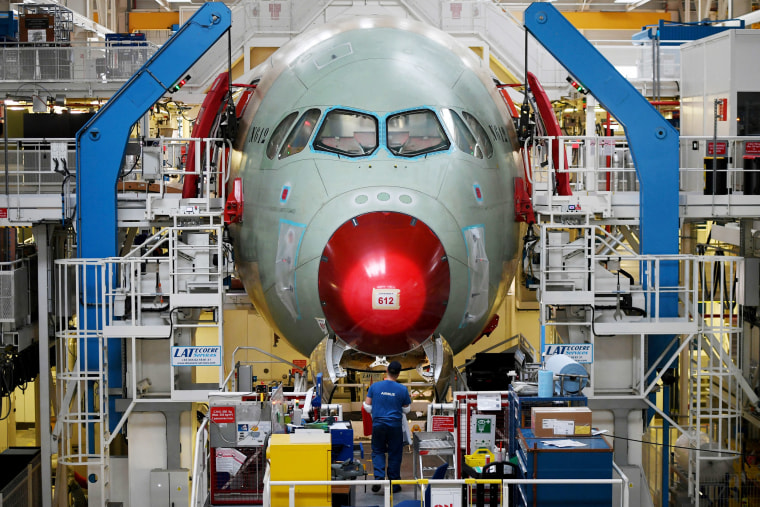In a recent development in the aviation industry, concerns have been raised over the potential use of counterfeit titanium in planes built by major aircraft manufacturers Boeing and Airbus. The Federal Aviation Administration (FAA) has indicated that both companies may have unknowingly installed components made from counterfeit titanium in their aircraft, sparking safety concerns and raising questions about the integrity of the supply chain in the aerospace industry.
The use of counterfeit materials in critical aerospace components is a serious issue that can have far-reaching consequences. Titanium is a crucial material in aircraft manufacturing due to its high strength-to-weight ratio and resistance to corrosion. Any compromise in the quality or composition of titanium components can lead to catastrophic failures, endangering the safety of passengers and aircraft crew.
The discovery of potentially counterfeit titanium in Boeing and Airbus planes has prompted the FAA to issue a directive instructing airlines to inspect and possibly replace certain titanium components in their aircraft. This directive underscores the importance of stringent quality control measures and thorough due diligence in the sourcing and testing of materials used in aircraft manufacturing.
One of the challenges in preventing the use of counterfeit materials in aircraft production is the complexity of global supply chains. Aerospace manufacturers rely on a network of suppliers and subcontractors to provide the thousands of components that make up a modern aircraft. Ensuring the authenticity and quality of every single component can be a daunting task, especially when dealing with materials like titanium that are subject to strict specifications and standards.
To address the issue of counterfeit materials in the aerospace industry, regulators and manufacturers must work together to strengthen supply chain transparency and accountability. This may involve implementing stricter auditing procedures, conducting more frequent inspections, and fostering closer collaboration between industry stakeholders to detect and prevent the use of counterfeit materials.
In conclusion, the revelation that Boeing and Airbus may have used counterfeit titanium in their planes serves as a sobering reminder of the importance of maintaining the highest standards of quality and safety in the aviation industry. As technology advances and aircraft become more complex, ensuring the integrity of the materials used in aircraft construction will be paramount in safeguarding the reliability and safety of air travel for passengers around the world.
